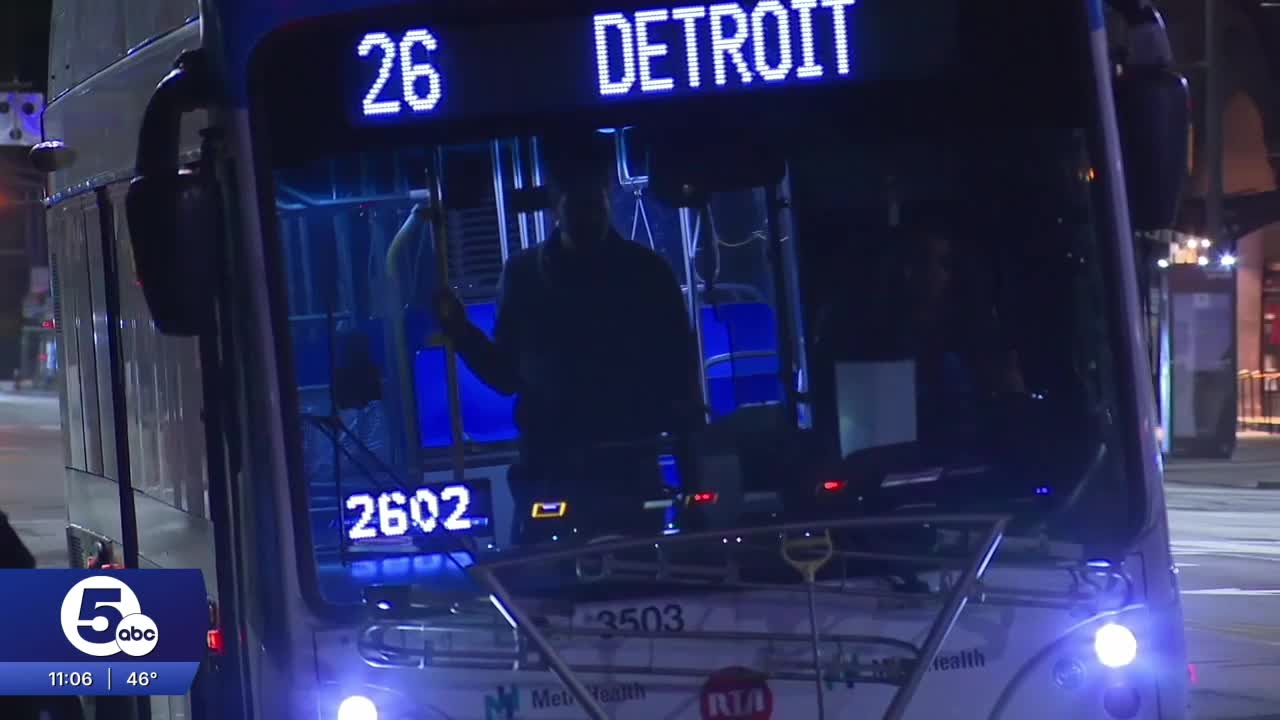CLEVELAND — The Greater Cleveland Regional Transit Authority (GCRTA) is now on the chopping block for service cuts, a hiring freeze, elimination of vacant positions, and a limitation on overtime.
The proposal was announced last week.
A total of 56 vacant positions would be eliminated.
There would also be a reduction for the non-personnel budget and an elimination transfer to Rolling Stock Reserve Funds.
In total, the RTA is projected to save $11.2 million if the proposal is approved as is.
How much a planned service reduction would save is unknown.
The last time the GCRTA made service cuts was in April 2020 due to the COVID-19 pandemic.
I asked the GCRTA last week for an interview, but a spokesperson declined.
Instead, small statements were provided via email.
When asked about what service cuts are being considered, a spokesperson told me it's too early to identify any specific service cuts.
"The purpose of these potential cuts is to reduce operating expenses in 2026 and beyond," GCRTA Public Information Officer Robert Fleig told me.
Fleig said it's also too early to say how long a hiring freeze and overtime limitation would last.
Chris Martin, the Chair for Clevelanders for Public Transit, a grassroots organization aimed at fighting for better public transportation in Cleveland, told me there's been some panic since the announcement.
Martin has been utilizing the RTA for most of his life.
"My first thought was that it's quicker than I expected, but I've been expecting this to happen for years now," Martin said. "I thought we were gonna have a few more years to fight, so on Tuesday, when I found out that those service cuts are likely coming in 2026, there's a little bit of panic. We are running threadbare now. We can't afford more cuts."
Braylon Padgette, a longtime RTA user, said the consideration of cuts makes him nervous for the future of public transportation in Cleveland.
"Just think of the people who have to go to work every day, school, you know, the regular commutes, so like it's already at a low now, so if you make it lower, I just pray that we could just all come together. They don't have to cut anything, and we could probably get funding from somewhere," Padgette said.
Martin suggests the RTA try to collect local funding.
"The RTA Board of Trustees has the power to place on a countywide ballot the question of either a property tax levy or a sales tax levy. A 0.5% increase in the county sales tax would not only plug RTA's budget holes but would allow the agency to expand service to restore some of that service that's already been cut," Martin said.
He also suggested pulling from parking tax revenue once the Cleveland Browns move to Brookpark, as well as utilizing Cleveland's smart meter money.
"Every source of revenue should be on the table," Martin said.
If another source of revenue isn't collected, Padgette fears for larger families who use the RTA daily.
It's hard. Listen, I'm about to cry now because I just feel for the people. Imagine the people who just need it. Families of four, five, six, like they need it. Cutting it, we're not gonna be able to go anywhere," Padgette said. "RTA, we gotta do better as a whole."
Instead of service cuts, Padgette said the RTA should shift its focus to creating a safer and cleaner ride for people.
"I really haven't been taking it (RTA buses) because of safety issues," Padgette told me.
Martin said Clevelanders of Public Transit is going to continue fighting the potential for service cuts and voicing that more needs to be done in the future when it comes to maintaining the safety of the riders.
"It is incumbent upon Clevelanders for Public Transit to build our power, to bring more riders, more members, more people to the fight," he said. "I can honestly tell you right now, this little grassroots group does not have the power to win this. It is incumbent upon us to grow stronger."
Service cuts will be decided in the spring of 2026.
Potentially, identified service cuts could go into effect in the summer of 2026.





